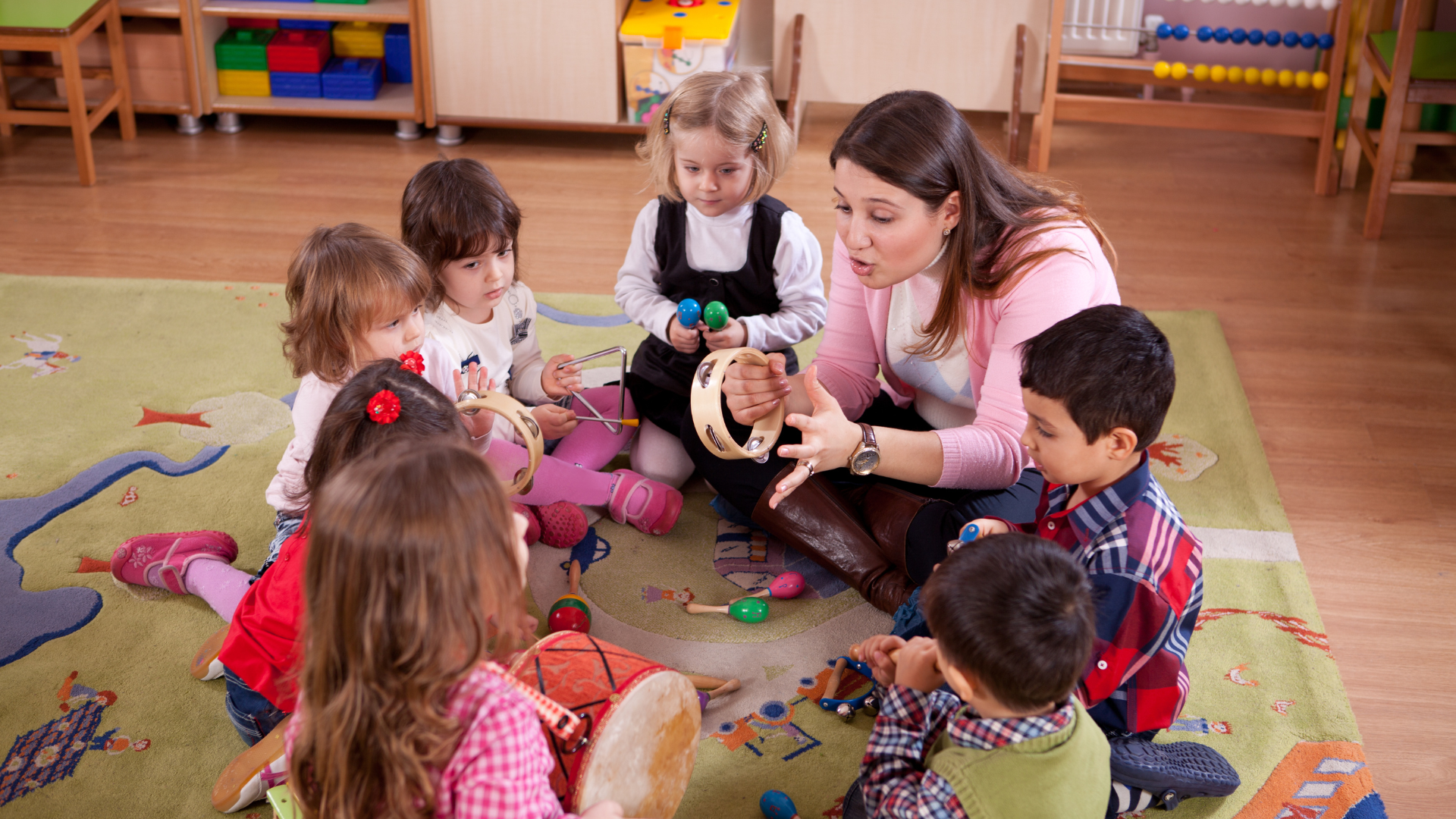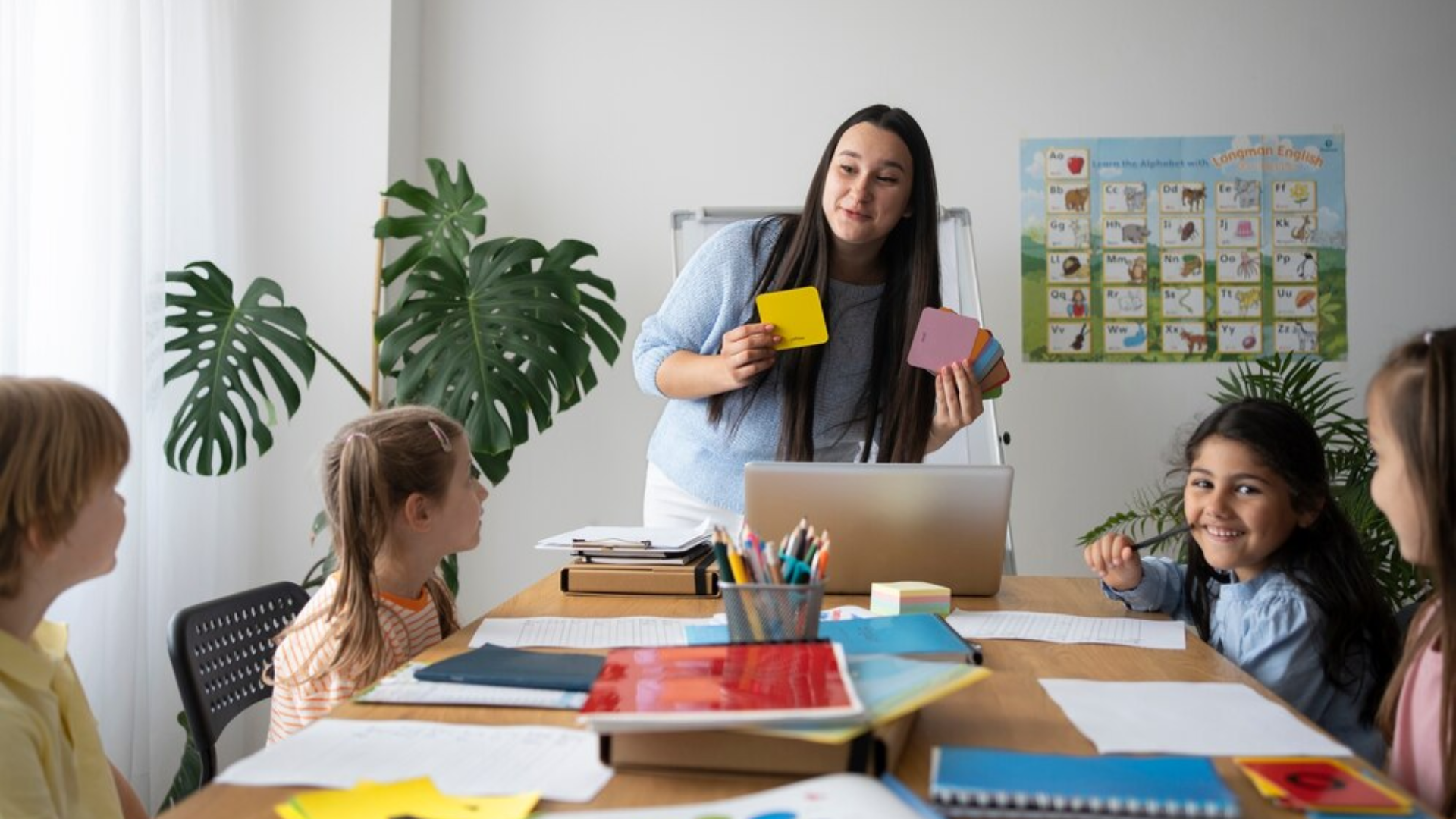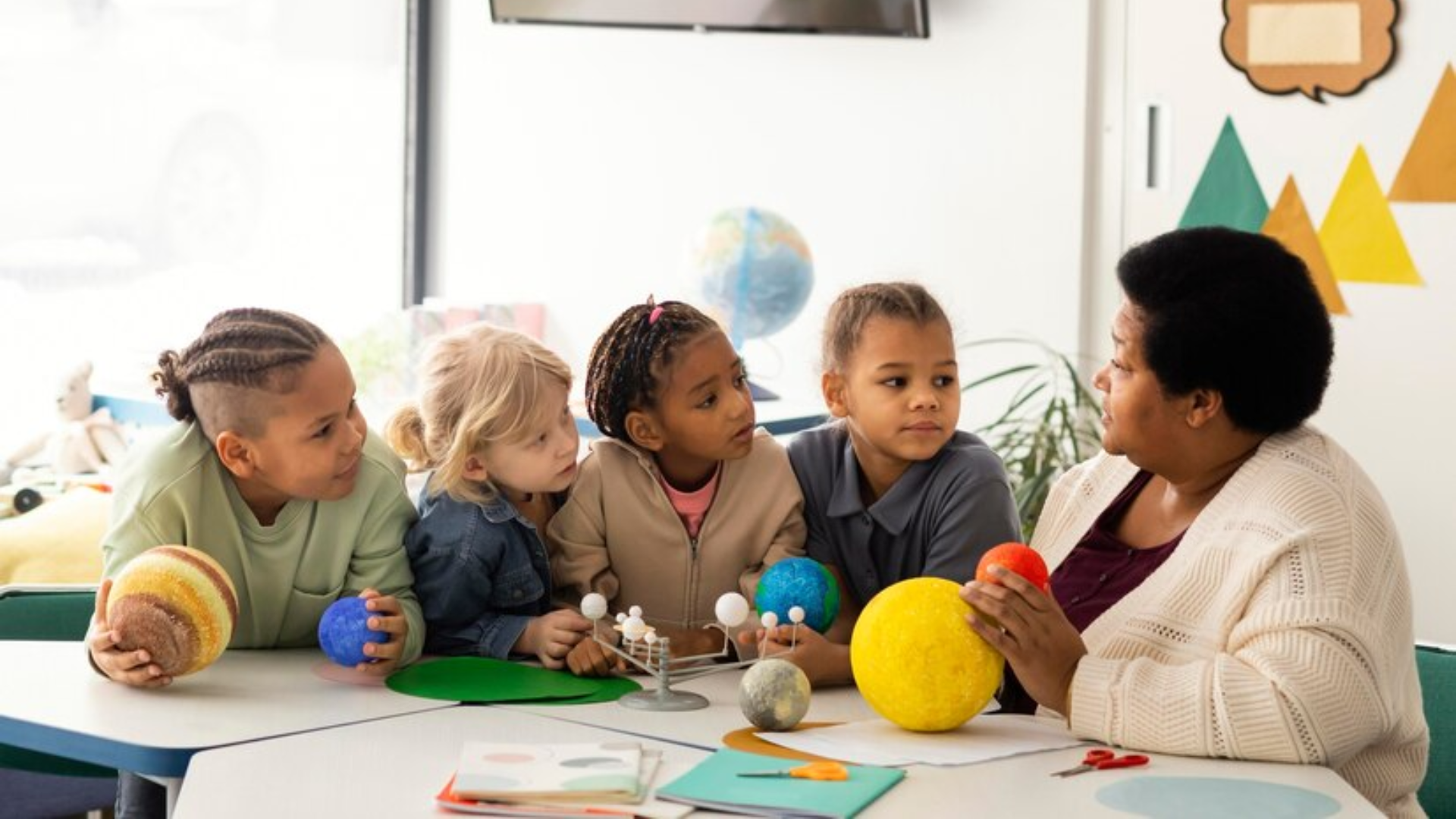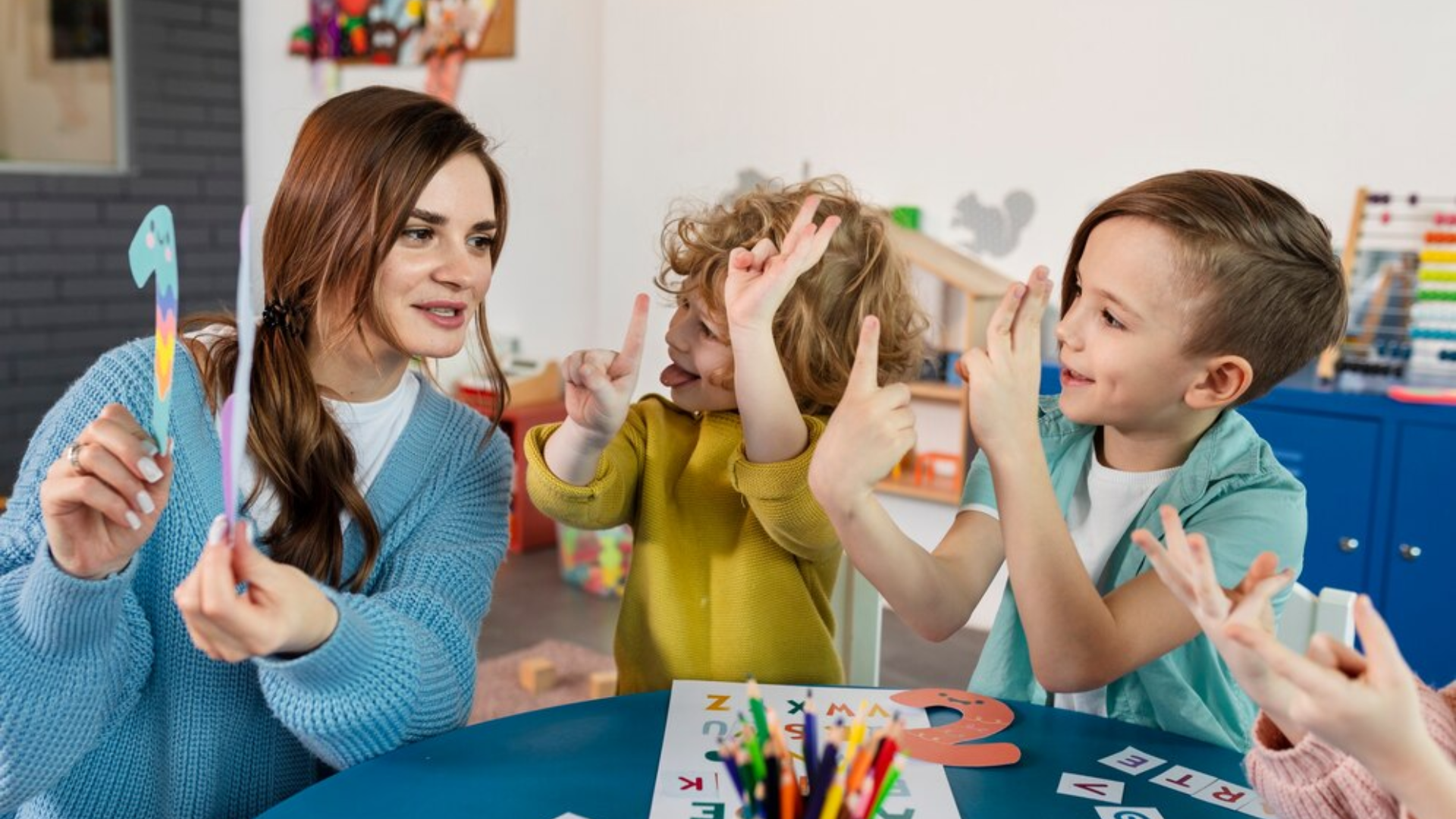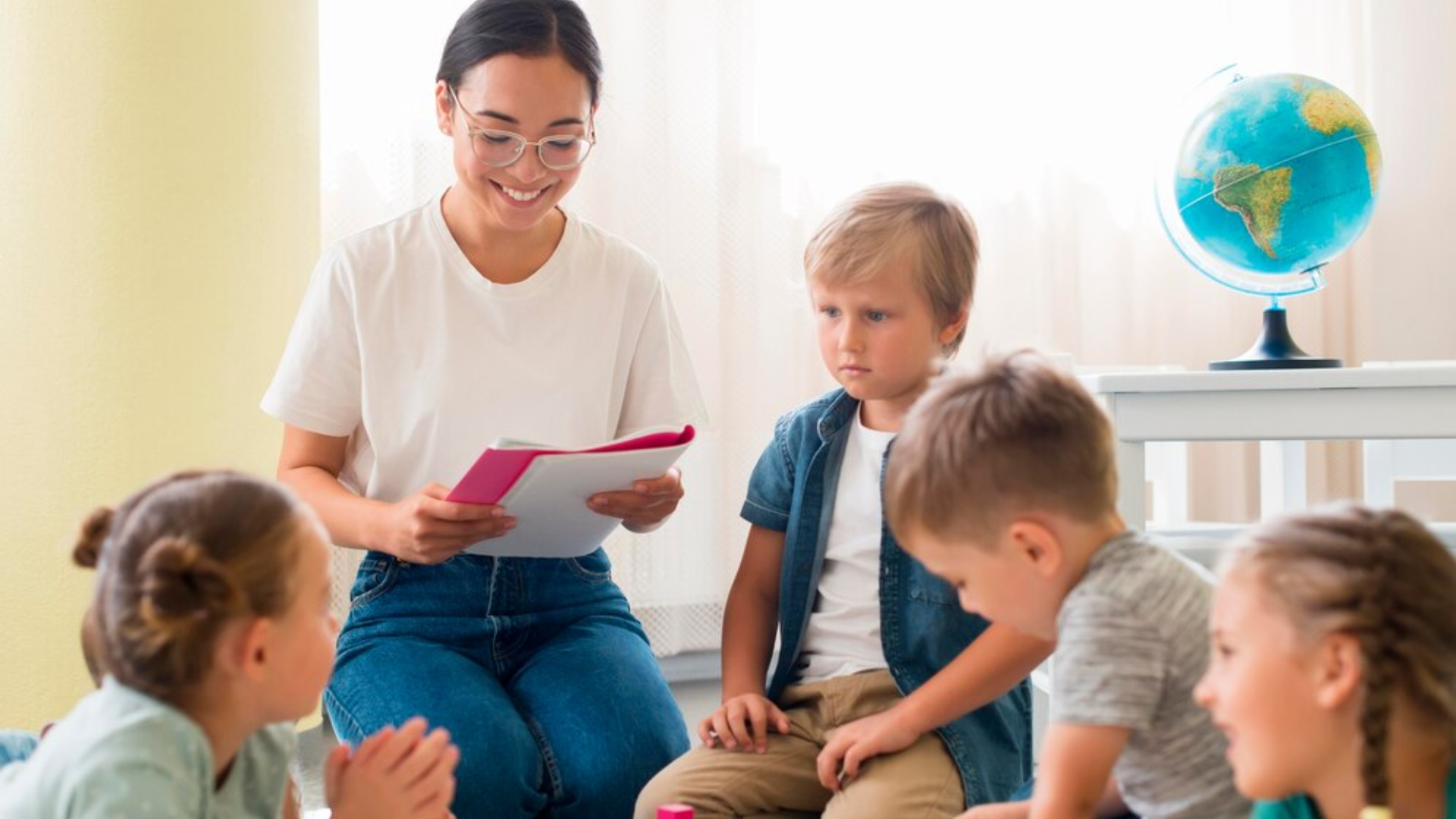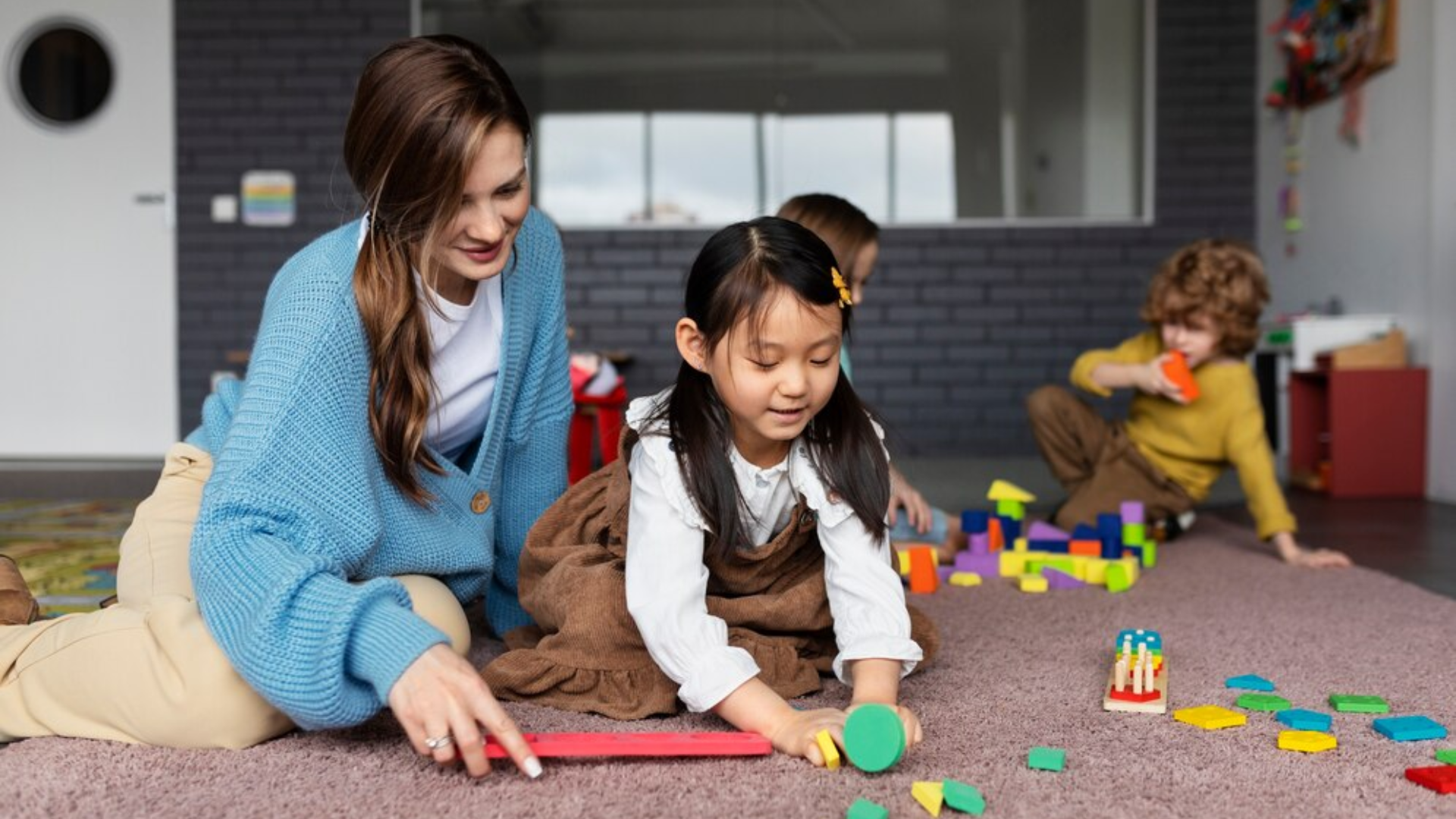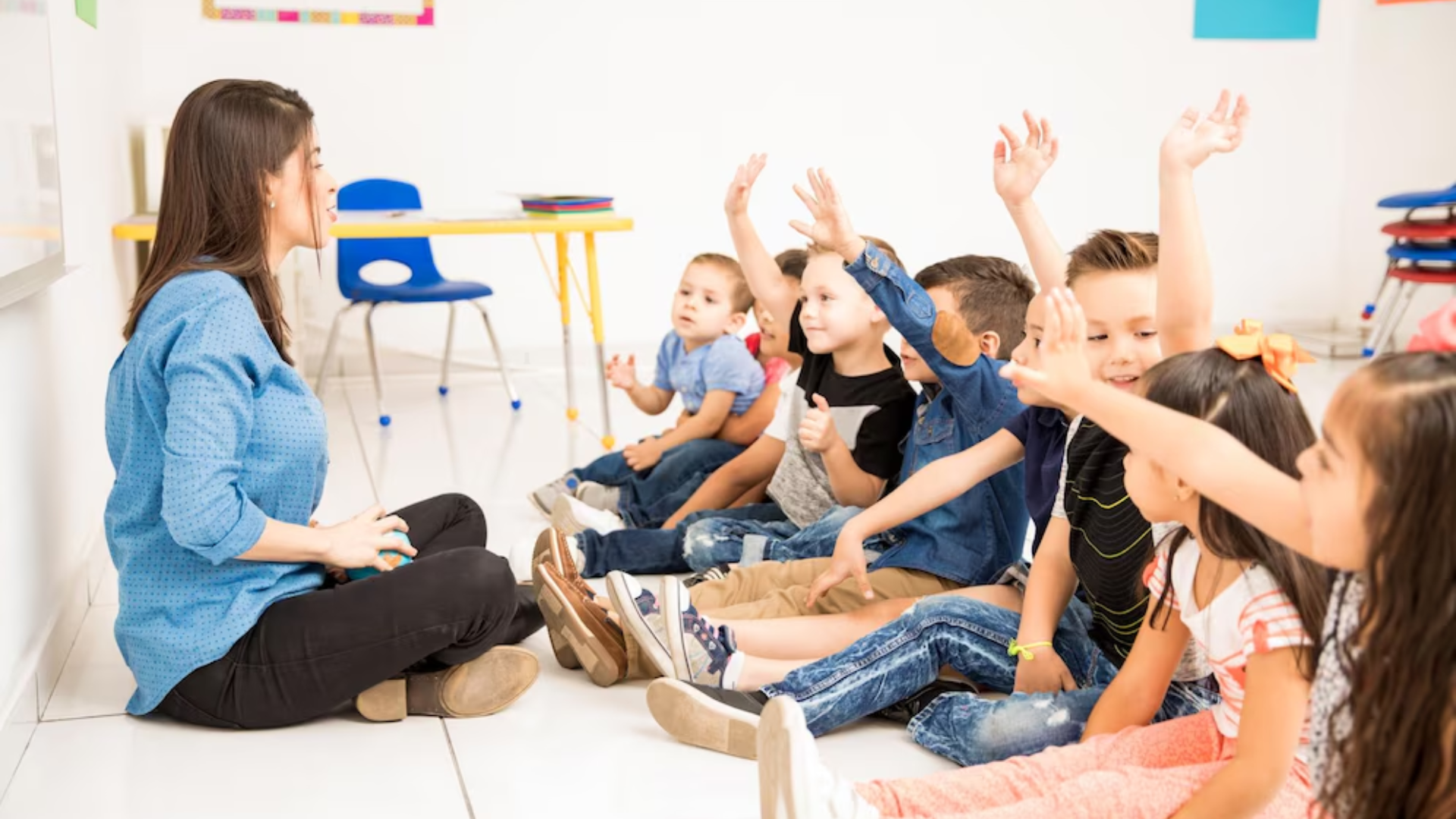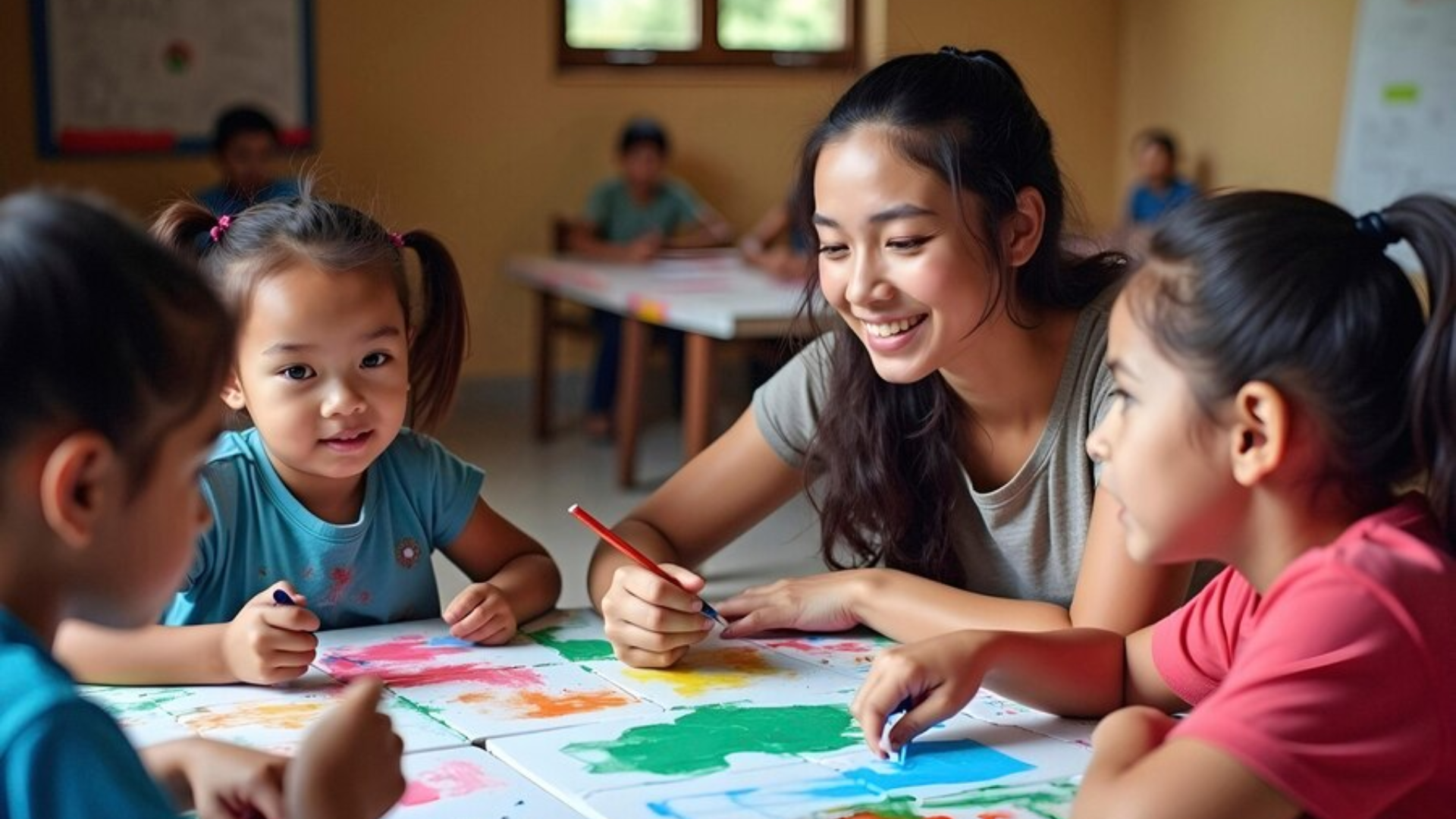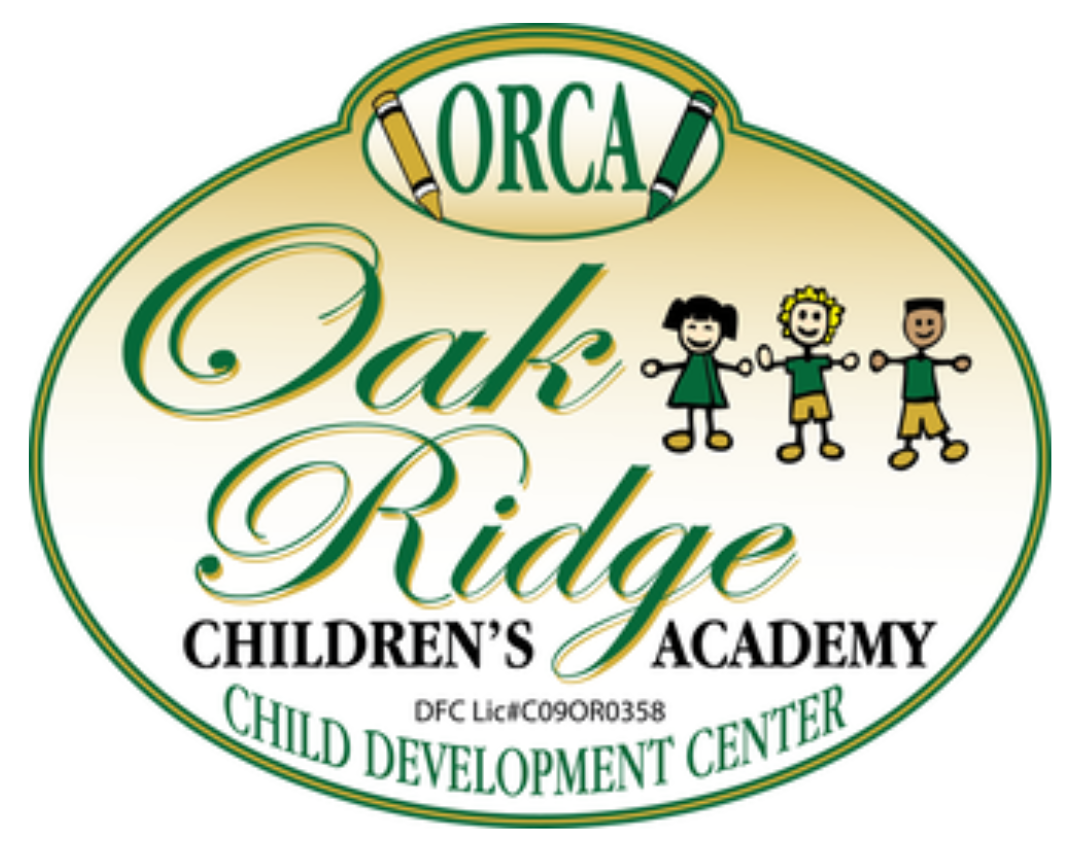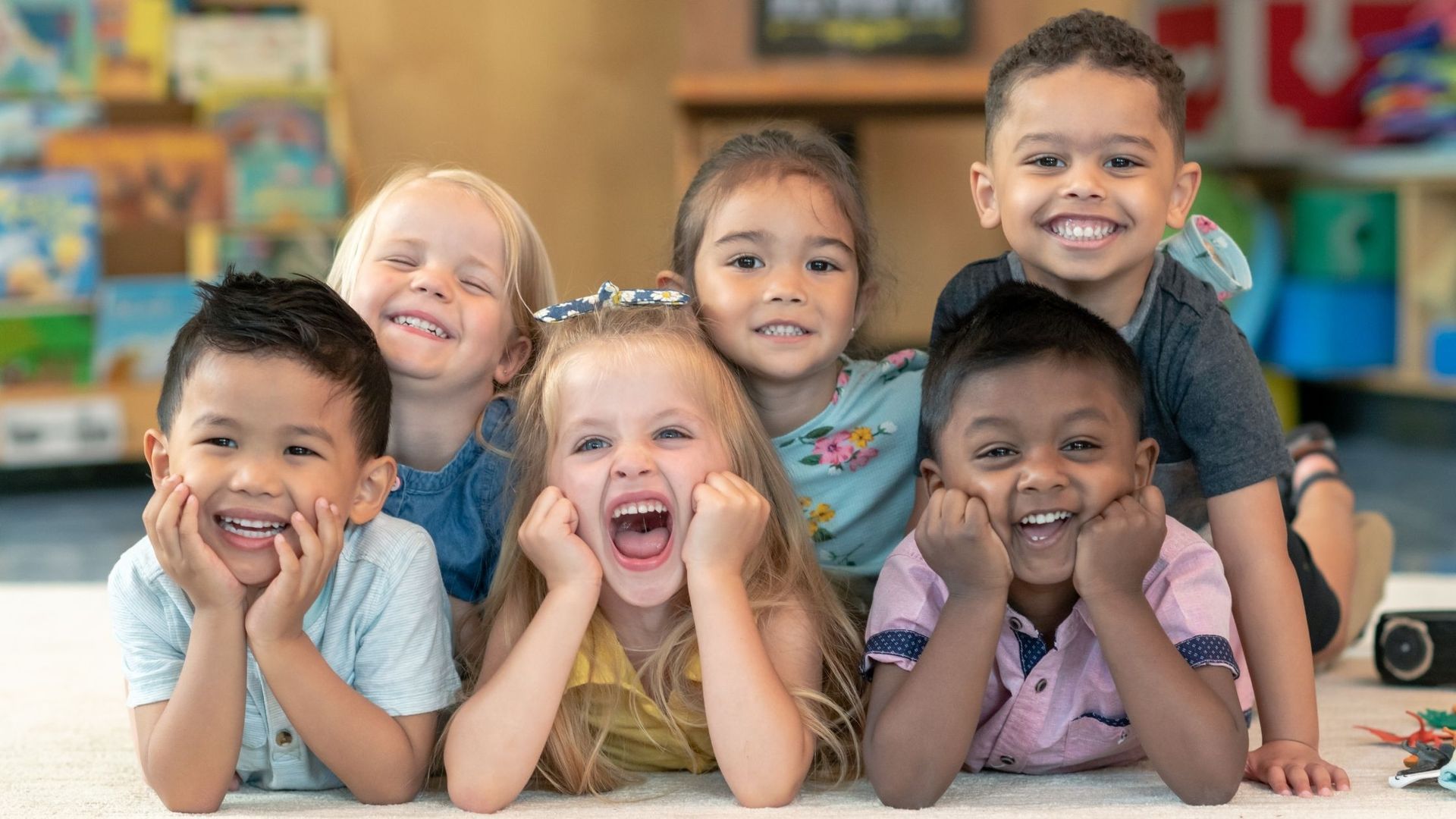Helping Kids Build Friendships and Social Skills in Early Childhood
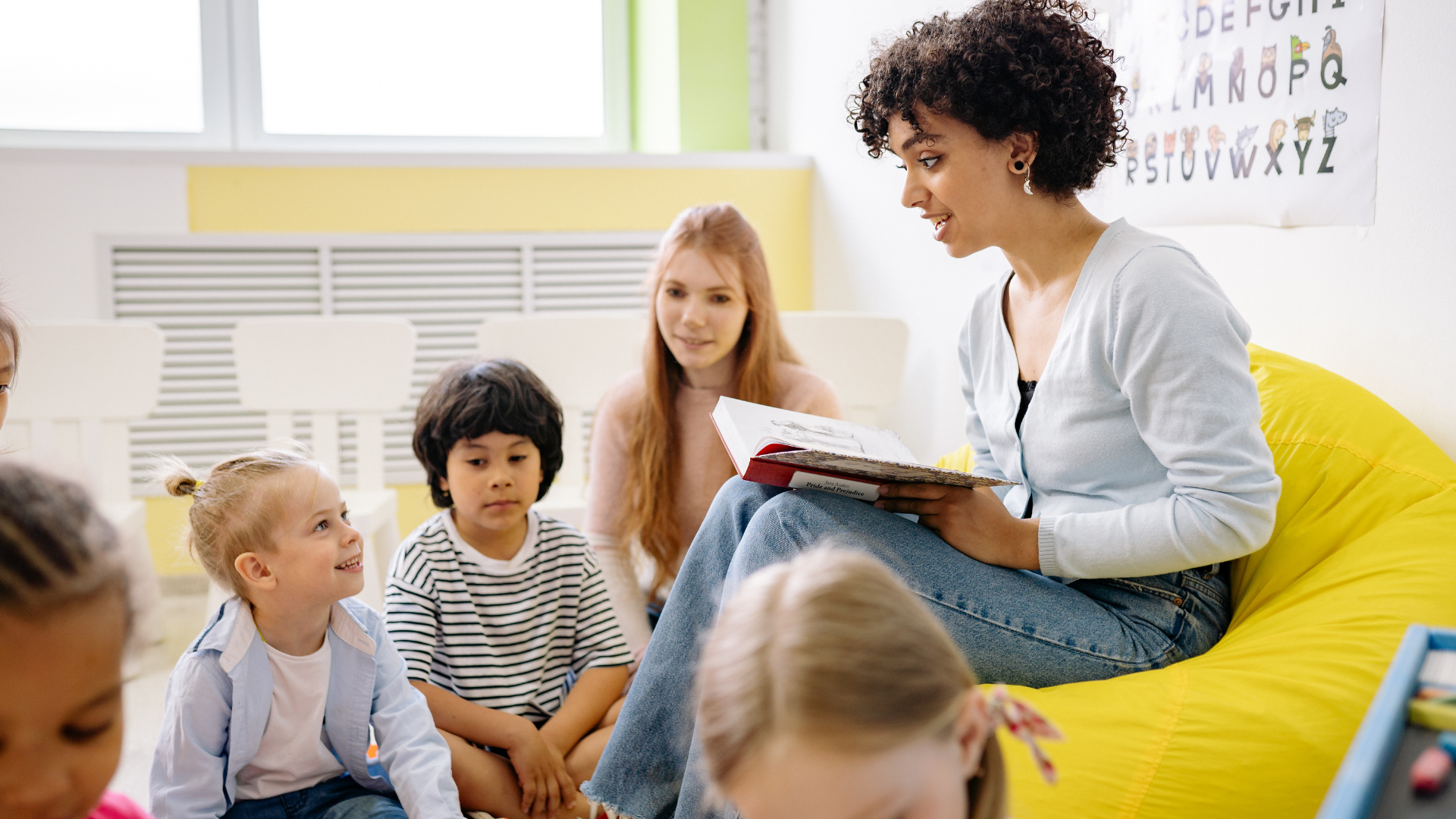
Early childhood is a critical period for building the foundation of social skills and forming friendships. Children begin to explore the world beyond their family unit, which means they start to interact more with peers, learn how to share, cooperate, and communicate with others. For parents and caregivers, guiding children through these early social experiences can help them develop healthy relationships, self-confidence, and emotional intelligence.
At Oakridge Children’s Academy, we understand the importance of supporting social development in the early years. This time in a child’s life provides many opportunities for learning important life skills that will serve them throughout their lives. In this blog post, we’ll explore the importance of building friendships and social skills in early childhood and offer strategies for parents to support these essential areas of development.
Why Friendships and Social Skills Matter
Friendships are important for emotional, cognitive, and social development. In early childhood, children learn how to navigate relationships with others, understand the importance of empathy, and practice conflict resolution skills. Social skills such as sharing, turn-taking, and communication are foundational for academic success, personal growth, and future well-being.
When children have positive interactions with their peers, they also experience emotional growth. These early friendships provide opportunities for children to develop a sense of belonging, build confidence, and practice self-regulation. Children who have supportive friendships are more likely to have positive self-esteem and develop healthy social behaviors as they grow older.
Additionally, research shows that children who develop good social skills at an early age are better equipped to handle the challenges of school, including working in groups, problem-solving, and coping with social conflicts. Therefore, fostering friendships and social skills is not just about having fun—it’s about preparing children for future success in school and life.
How to Help Kids Build Friendships and Social Skills
1. Create Opportunities for Peer Interaction
Children need opportunities to interact with other kids in a variety of settings. Playdates, group activities, and social events allow children to practice social skills like sharing, taking turns, and cooperating with others. You can encourage positive peer interactions by providing spaces for group play, either at home or in community settings.
- Playdates: Organize playdates with children of similar age or temperament. These one-on-one interactions provide a safe space for children to learn how to form relationships.
- Group Activities: Encourage your child to participate in group activities, such as story time at the library, art classes, or sports. These settings allow children to learn teamwork and engage in shared experiences.
- Community Events: Participate in community events like park visits or local festivals. These gatherings offer children the chance to meet new friends and practice social skills in a less structured environment.
Creating regular opportunities for social interaction will help your child feel more comfortable with their peers and give them the chance to practice navigating different social situations.
2. Model Positive Social Behaviors
Children learn by observing the adults around them. Modeling positive social behaviors, such as greeting others politely, expressing gratitude, and resolving conflicts calmly, teaches children the right way to behave in social situations.
For example:
When you interact with others, use polite language and make eye contact. This shows your child how to greet others and engage in conversations.
Show empathy by acknowledging your child’s emotions and expressing how they might feel in a situation: “It looks like you’re upset because your friend took your toy. Let’s ask them politely if you can have a turn.”
Children are keen observers, and when they see you engage in respectful, thoughtful interactions, they will be more likely to imitate these behaviors.
3. Teach Basic Social Skills
Young children need guidance when it comes to learning social norms and behaviors. At Oakridge Children’s Academy, we focus on teaching fundamental social skills, such as:
- Sharing: Model sharing behavior by offering toys and taking turns during playtime. You can also guide your child by saying, “It’s your friend’s turn now. We’ll share the toy.”
- Taking Turns: Encourage your child to practice taking turns in games and activities. Praise them for waiting patiently and encourage them when they succeed in waiting for their turn.
- Saying “Please” and “Thank You”: Teach your child to use polite language when interacting with others. Regularly reinforce the importance of saying “please” and “thank you” in social interactions.
You can use stories, books, and role-playing to reinforce these skills in everyday situations. For example, you might act out a scenario in which two children take turns with a toy and use polite language.
4. Foster Empathy and Understanding
Empathy is an essential social skill that helps children understand how others are feeling. Teaching empathy from a young age can help your child develop deeper, more meaningful friendships as they grow older.
Here are a few ways to foster empathy in young children:
- Talk About Emotions: Help your child recognize and label emotions in themselves and others. For example, say, “I see that you’re feeling sad because your friend didn’t share the toy. How do you think they’re feeling right now?”
- Practice Perspective-Taking: Encourage your child to think about other people’s feelings. For example, “How would you feel if someone took your toy without asking? What could you do to make your friend feel better?”
- Model Compassion: Demonstrate acts of kindness and compassion. Show your child how to be kind and helpful, such as offering assistance to a friend or showing concern when someone is upset.
Fostering empathy helps children build deeper connections with others, as they learn to understand and care for their peers’ emotions.
5. Encourage Positive Conflict Resolution
Conflicts are a natural part of friendships, and learning how to resolve them is an important social skill. Teaching your child how to handle disagreements constructively can prevent frustration and teach them how to maintain positive relationships.
Here’s how to guide your child through conflict resolution:
- Stay Calm: Teach your child to stay calm when conflicts arise. Encourage them to take deep breaths and use words to express their feelings rather than resorting to physical actions.
- Use “I” Statements: Teach your child to use “I” statements to express their feelings without blaming others. For example, “I feel upset when you take my toy without asking.”
- Find Solutions Together: Encourage your child to think of solutions to the conflict. Help them brainstorm ideas and involve them in resolving the issue. For example, “What do you think we could do so both of you can play with the toy?”
By helping your child learn how to solve problems with their peers, you give them valuable tools for managing conflicts throughout their lives.
6. Be Supportive and Patient
Friendship-building takes time, and children may encounter challenges along the way. Some children are naturally more outgoing and social, while others may need more time to warm up to their peers. It’s important to be supportive and patient as your child navigates these experiences.
Acknowledge Progress: Celebrate small victories, such as your child asking someone to play or sharing their toy without prompting. Positive reinforcement helps build confidence.
Provide Comfort During Difficult Moments: If your child experiences a setback, such as a disagreement with a friend, offer comfort and reassurance. Help them process their emotions and remind them that friendships take time to develop.
As your child continues to practice social skills, they’ll become more adept at building and maintaining friendships, gaining confidence and emotional resilience along the way.
Setting gentle boundaries with preschoolers is an essential strategy for fostering a positive and supportive learning environment while also preventing disruptive behaviors like tantrums and meltdowns. In our blog post Gentle Ways to Set Boundaries with Preschoolers, we explore effective methods for setting limits with compassion and consistency, promoting emotional regulation. Additionally, understanding the difference between tantrums and meltdowns and how to address them is crucial for maintaining emotional balance. Our article The Difference Between Tantrums and Meltdowns and What to Do About Them offers insights on how to recognize and respond to these emotional outbursts in a way that supports your child's growth and development.
Conclusion: Building Strong Foundations for Lifelong Friendships
Helping kids build friendships and social skills in early childhood is one of the most important things parents and caregivers can do. These early experiences shape the way children interact with others, resolve conflicts, and understand their own emotions. By offering opportunities for social interaction, teaching essential skills like sharing and empathy, and supporting your child through challenges, you are setting them up for a lifetime of positive relationships.
At Oakridge Children’s Academy, we strive to create an environment that fosters healthy social and emotional development. If you’re looking for more guidance on supporting your child’s social growth, our educators are always available to offer tips and insights.
By nurturing these essential skills, you’re not just helping your child make friends—you’re giving them the tools to thrive socially, emotionally, and academically.
